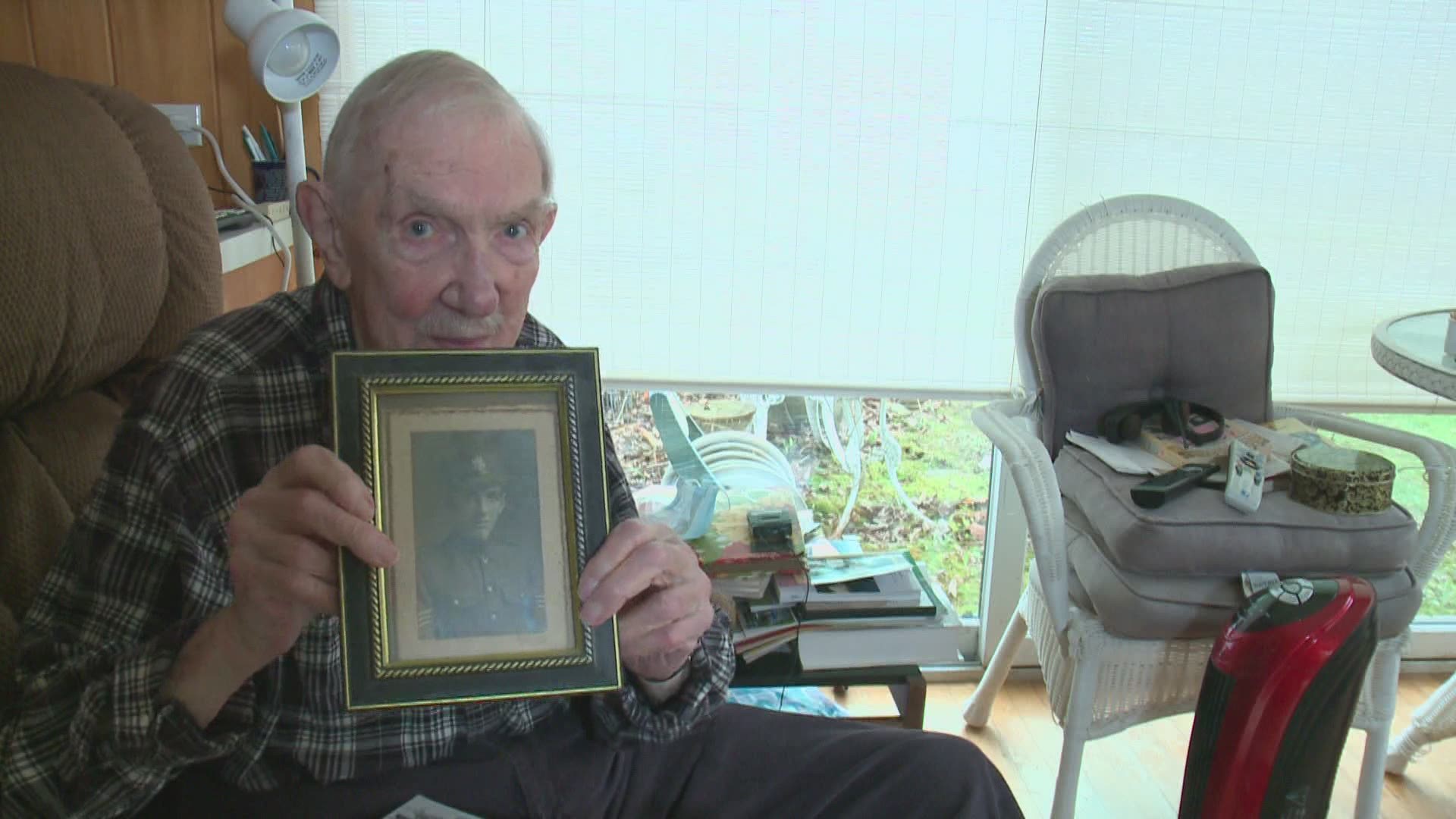
SOURCE: Newscentermaine.com
Bob Howell sits in the sunroom of the oldest house in Bristol, Maine, and talks of his childhood, including two years living in Bristol, England. Bob was born and raised in England, but in the early years of World War II, he could not fight for his country because he was too young.
Bob was born in 1922, and his teenage years were in the shadow of the growing threat from Germany. Bob was part of the Home Guard in his town, local people who would train to oppose an expected invasion, but Bob says they lacked the ability to really do much.
“We were parading with broomsticks instead of rifles because there weren’t any rifles,” he says. “We had no means of defending ourselves, literally, but we all knew we would win because Winston Churchill told us we would win.”
Bob says his own town was bombed by the Germans before the Luftwaffe attacked London.
As a result, he wanted to get into the fight but the British wouldn’t draft anyone under age 20. But at 17, he was able to join a Young Soldiers Battalion, and a year later they were considered part of the real Army. He says the unit was mostly tough, working-class kids.
“The language was something I had to get accustomed to, they had a lot of strong and dirty words.”
Bob’s upbringing had been a bit more refined, he says. And unlike many of his peers, Bob had a good education, which proved crucial to his military career.
Bob said, “I could read and write, you see, and so I became a sergeant, think I was the youngest in the British Army at 18.”
But, sergeant or not, he was still too young to fight in North Africa. Bob began training as an officer and found out he could go overseas but as part of the British Indian Army.
So at age 19, he sailed for India.
“Two and a half million [soldiers], it was the largest army the world had seen and all volunteers,” Bob says.
Many Americans likely did not know of the involvement of the Indian Army in the war, but they fought alongside British and other units in North Africa and Italy and engaged in fierce combat against the Japanese in Burma, Malaya, and other countries.
Bob rose through the ranks to Captain then served as adjutant assisting the Colonel commanding his unit and then became a company commander.
He says some of the memories of those fights are still difficult, though he adds he “doesn’t dwell on it.” But he mentioned one large battle in particular, where the Indian Army stopped the Japanese from invading India at a place called Kohima. The enemy, he says, had a force of 83,000 soldiers.
“[The Japanese] were going to seize this town of Kohima which would be their gateway into Calcutta and Bengal in India,” Bob said. “And of their 83,000 they had 53,000 casualties—53,000 casualties is a lot of deaths. The Japanese suffered badly.”
In 1945, Bob trained as a paratrooper and was ready for the next fight—which never came.
“We were all set to drop at Elephant Point in Rangoon, and then we heard the [atomic] bomb had gone off. We didn’t know what they were talking about, and then the war ended.”
Bob’s adventures, however, were not over. Out of the Army, he worked for several years on a teak plantation in Burma, harvesting trees with teams of elephants.
“I enjoyed living in the forest, enjoyed working with elephants, all those things that happened after the war. During the war, the forest wasn’t quite so friendly.”
On a trip home to England, he met his future wife, and decided to stay there. That’s when Bob began a new career as an executive in major corporations in England, which eventually led to him leading and rebuilding the British division of Ex-Lax corporation. Bob says that resulted in a call summoning him to New York to become president of the whole company. He retired to Maine in the mid-1980s.
Bob says those years in the Army taught him self-discipline and helped him succeed in business and in life.
And while he says he doesn’t dwell on the bad memories of war, saying, “I’ve had so much happiness and so much success I don’t need to think about that stuff”—each Veteran’s Day is still a time to think back.
“When we were boys in school, we would stand for the 2 minutes silence in school, and a gun would go off and we would all stand there and think for 2 minutes. I still do that, although the gun doesn’t go off.”
His Veteran’s Days, 80 years later, like those of so many others.
“I have many happy memories, and memories of good pals who didn’t make it.”






